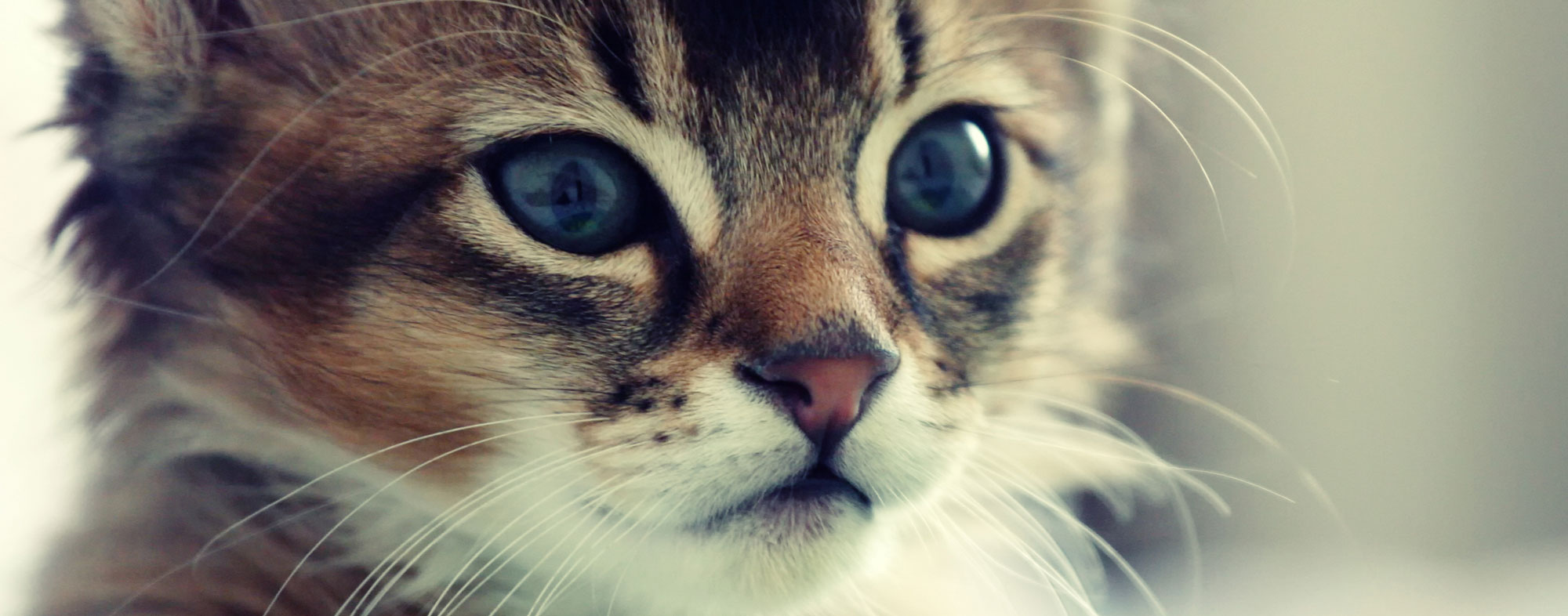Kittens are a bundle of fun and can be a wonderful and exciting experience. However, if you are unprepared they can be quite overwhelming! They require lots of love, cuddles and attention to ensure they don’t get themselves into trouble.
Here are some of our best tips for preparing your home for your new addition:
Get a comfy bed for them to sleep in:
Between bursts of play, kittens spend a lot of time sleeping (up to 16 hours a day!) Make sure they have a cosy hideaway where they can catch some z’s and feel safe. Some kittens like a cube or nest type bed where they can hide, whereas others will like splaying across a flat padded bed. Whatever they prefer, make sure it is safe without threads that they can get caught on.
Prepare the kids for the new arrival:
If you have children, particularly young ones, it is vital to teach them boundaries when handling their new addition. All handling must be done with supervision, and be mindful that the kitten may become overwhelmed and will need time out. If the warning signs get ignored, a kitten can quickly become frightened or lash out! We have also seen injuries caused from mishandling and unsupervised play.
If you do have children, set the ground rules early and allow the kitten plenty of time to rest and have time out.

Other things to consider with a new kitten:
Vaccinations
Vaccination generally takes place between 6-8 weeks, at 10-12 weeks and sometimes at 14-16 weeks of age, depending upon the type of vaccines the kitten is having. The standard kitten vaccine protects them from two types of highly infectious cat flu and infectious enteritis. A secondary vaccine is advised if you plan to allow your kitten time to roam outside, which protects against feline immunodeficiency virus (FIV), a lethal disease if contracted. Your kitten can be allowed out 10 days post their final vaccine.
Your cat will require yearly boosters, to maintain enough immunity to protect them for life. Failure to have your adult pet’s vaccination boosters could result in their becoming infected with one of these life-threatening diseases. We will send you a reminder when this is due. If you require any more information, please contact our friendly team for more details.
Desexing
Desexing is an important step in maintaining the overall health of your pet, and has the added benefit of minimizing bad behaviours such as aggression, roaming and urine-marking.
We recommend desexing your kitten at 5-6 months of age, before they reach sexual maturity. Statistics have shown that neutered pets live longer lives.
Females undergo a ‘ovariohysterectomy’. This is an abdominal surgery that removes the uterus and the ovaries.
Males undergo a ‘castration’, in which both testicles are removed.
Desexing is a procedure recommended for all cats not intended for breeding.
New laws for dog and cat owners come in to effect as of 1 July 2018. The laws and rules include desexing of dogs and cats born after the 1 July 2018, mandatory microchipping of dogs and cats, new rules for breeders who sell dogs and cats and the introduction of a statewide database, called Dogs and Cats Online. Click here for a link to the Good Cat SA for more information.

Microchipping
Microchipping is a permanent form of identification placed under the skin between your kitten’s shoulder blades. It can never be lost or removed, increasing the chance of them being returned to you should they ever be lost or stolen.
Microchipping can be done anytime in a consultation and we will register the number with the national database before you leave. As mentioned above, microchips become a council requirement as of 1 July 2018. If you have any further queries, please contact the clinic.
Parasite Control
Parasite control is a life long responsibility for all pet owners, and can cause serious health issues if ignored. Intestinal worms can be passed between pets and humans; heartworm is lethal, and passed on by mosquitoes thereby putting any kitten at risk; Fleas can cause nasty skin problems, and even death in unwell or young cats.
Kittens require treatment against gastrointestinal worms at 2, 4, 6, 8, 10 and 12 weeks of age. From 12 weeks they should be wormed once a month until 6 months of age, then every 3 months for life, depending on the parasite preventative you choose.
We will be able to advise you on what product suits you, your pet and your budget. We also stock the safest, effective and most clinically tested products available. For more information on parasites and the options available, please check out the parasite prevention options here.
Diet
A high quality diet is important, particularly in growing kittens. We as veterinarians, use and recommend super premium diets (such as Hill’s Science Diet, Royal Canin) for your pets as they are made from the highest quality ingredients.
Dry food formulas are the most effective way to provide the very best for your new kitten. These diets are specialized, fully balanced and made from premium grade ingredients, and are available in veterinarians and pet shops only. They are highly concentrated meaning less mess to pick up for you, and are not packed with artificial colours, flavours and fillers.
If you are unsure as to what you should be feeding your new addition, please contact our friendly team for details.
Insurance
Pet insurance is becoming more popular and is more readily available than ever. As with human medicine, new advances in veterinary medicine are becoming available. Unfortunately cost is often a limiting factor, and may mean life or death for many patients.
Having your pet insured will give you the peace of mind to be able to offer your furry friend the very best level of care, and have most, if not all of your costs reimbursed. Most major insurance companies offer pet insurance in some form, we recommend you do your research and speak to their customer service officers for more information.


